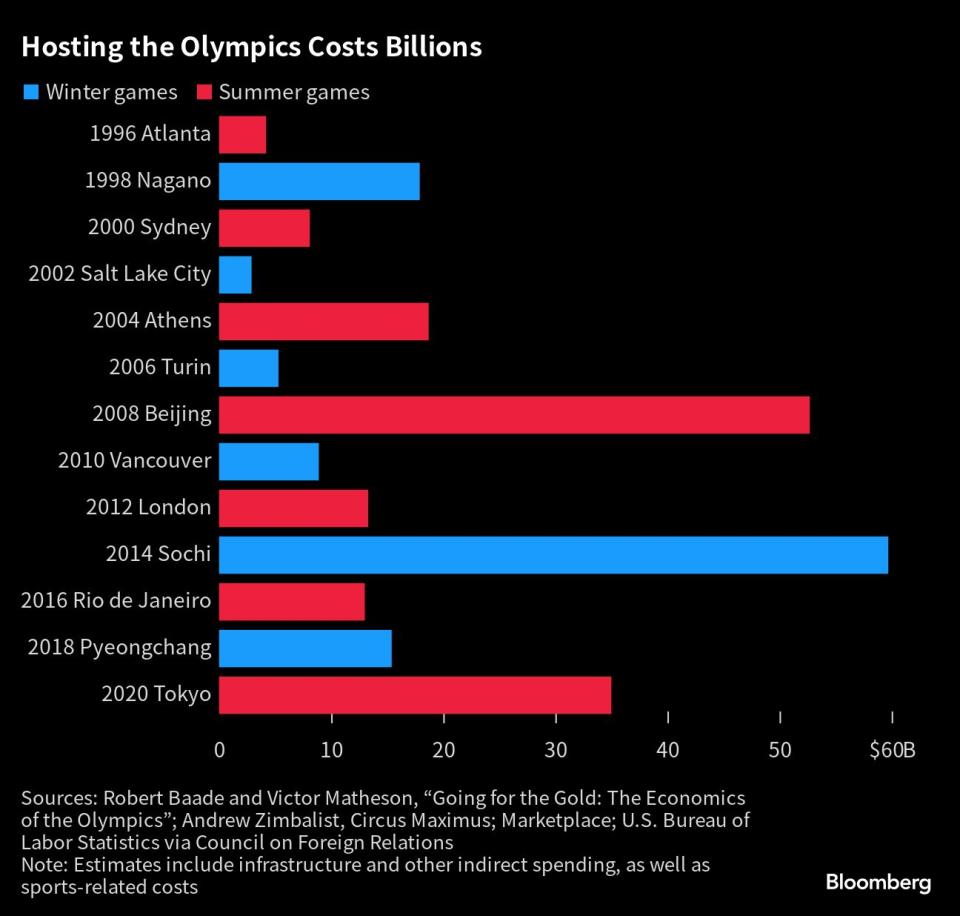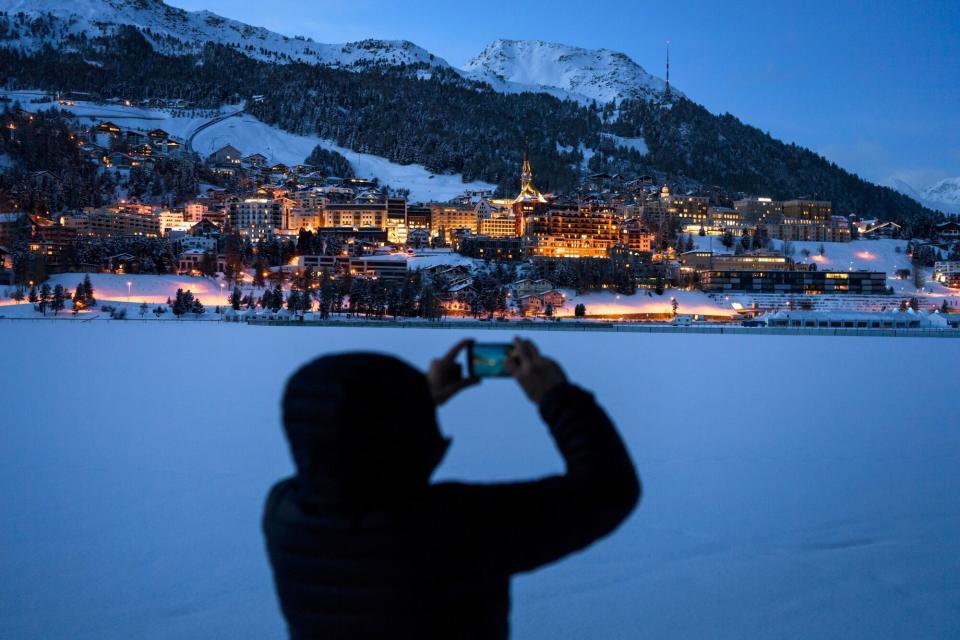Wealthy Switzerland Seeks Low-Budget Olympics After Years of Opposition
(Bloomberg) -- Switzerland wants to host the first Winter Olympics spread across an entire country. It also wants to overcome historic opposition by proposing that the games be the cheapest on record.
Most Read from Bloomberg
Russia Downs Drones Over Moscow in Ukrainian Retaliatory Strike
Billions Wiped Out as Stock-Safety Trade on Wall Street Misfires
S&P 500 Wavers After Big Rally as Treasuries Climb: Markets Wrap
Winter Games are usually held by a certain region or city, and they can be pricey. The 2018 edition held in Pyeongchang, South Korea, cost about $13 billion. Even back in 2002, Salt Lake City still spent $2.2 billion on the Games.
But Switzerland’s sports federations voted unanimously on Friday to approve the local bid, clearing the way for a $1.6 billion proposal for the 2030 Games. Accounting for inflation, that would make it arguably the cheapest Olympics in history — and the most cost-effective since Los Angeles eked out a profit in 1984.
The bid marks a shift from governments spending billions on hosting Games as a show of power and urban renewal toward a more sustainable Olympics that’s focused on sport. French Finance Minister Bruno Le Maire said he wants the Paris 2024 Games to be the cheapest in decades, with the state on the hook for just a quarter of the cost of the 2 1/2 week event.
Read more: France Plans Cheapest Olympics in Decades for Taxpayers
Still, locals are wary of politicians’ promises.
“I’m for the Games,” Shehu Shkelzen, 63, said as he sipped a beer in a Lausanne cafe just 200 meters (656 feet) from the International Olympic Committee’s headquarters overlooking Lake Geneva. “But 1.5 billion becomes 2 or 2.5. It’s important there are no surprises afterward or we keep paying.”
Though Switzerland has been host to the IOC since 1915 and the Swiss resort of St. Moritz is credited with inventing winter tourism, local skepticism has sabotaged at least three previous bids for the Winter Games. St. Moritz has hosted the Games twice but the last time was in 1948.
When another bid surfaced in 2013 to host the 2022 Games in Graubunden, it was narrowly rejected by wary citizens. A bid for the 2026 Games was again rebuffed by the same canton in 2017 and a year later, a rival effort in the canton of Valais was also rejected.
This time around enthusiasm for hosting the 2030 Winter Games is picking up, in part because of a promise to rein in costs. The fact the Games would be spread right across the country, an Olympic first, with no single canton shouldering the burden helps too. Two out of three Swiss would support a bid, according to a poll they commissioned in August.
Next summer the IOC will choose the hosts for the 2030 and 2034 Winter Games. A rival bid from two French Alps regions has the backing of President Emmanuel Macron, while another bid is likely from Sweden.
‘Big Owe’
Promises to hold Winter Games with tight purse strings have been made before, and broken. The ‘Big O’ stadium in Montreal was quickly dubbed the Big Owe, as the budget for the 1976 Olympics ballooned by more than 700%.
A half-century later, four of seven bids that were initially submitted for the 2026 Winter Games were withdrawn after facing a groundswell of local opposition. Milan-Cortina d’Ampezzo was eventually chosen to host the 2026 Games — from a shortlist of two.
Victor Matheson, an economist at College of the Holy Cross in Worcester, Massachusetts, is skeptical the Swiss can deliver the Games for just $1.6 billion given that would be 10% of the average cost of the past seven Winter Olympics.
“So, maybe this is possible, but it seems unlikely,” he said.
Andrew Zimbalist, a professor at Smith College who specializes in the economics of sports, says Switzerland has a shot at breaking even because it’s not pledging new construction.
“Just because you host the Games it doesn’t mean you have to lose money,” he said. “It’s just that it’s been like that so often before.”
‘No Gigantism’
The plan is for Lausanne and the Swiss capital Bern to hold the opening and closing ceremonies, with ice hockey to be played in Zurich and Zug, downhill racing in Crans-Montana, and half-pipe events in St. Moritz. Venues already exist or will be refurbished for at least nine European or World championships being held in Switzerland before 2030, leaving just long-track speed-skating without a facility.
But rather than build one, officials say they’d lean on a neighboring country to host that event. Building an Olympic village is also out the window in favor of smaller hubs. Such an approach would ensure that there isn’t a repeat of what Swiss Olympic Vice President Ruth Wipfli-Steinegger calls the “gigantism” that has dogged the Games in the past.
“The Games must adapt to the organizing country,” says Swiss Olympic, “not the other way round.”
Most Read from Bloomberg Businessweek
Scientists and Farmers Race to Save the World’s Banana Supply
How Elon Musk Spent Three Years Falling Down a Red-Pilled Rabbit Hole
Guatemalan Town Invests Remittance Dollars to Deter Migration
©2023 Bloomberg L.P.



